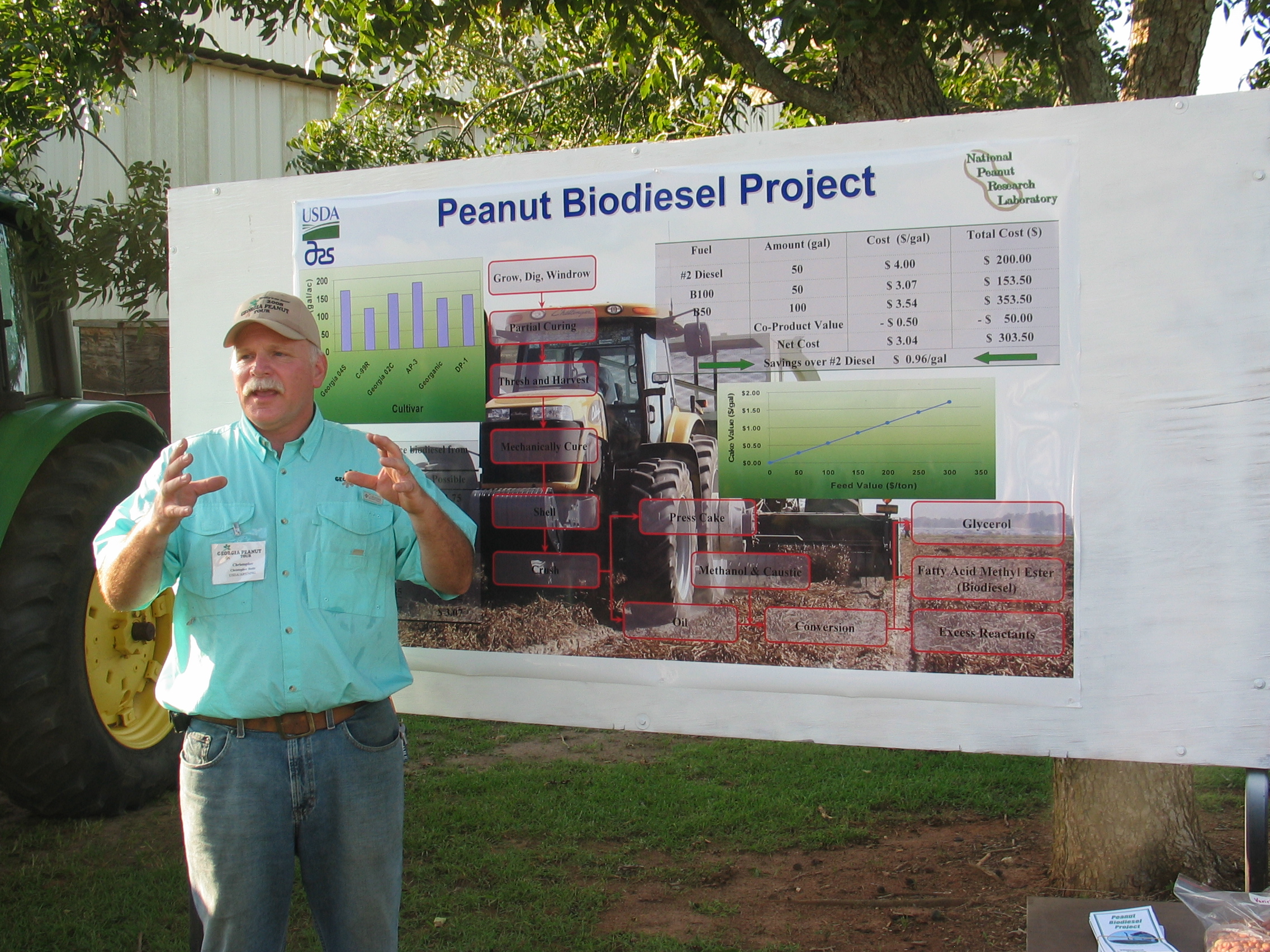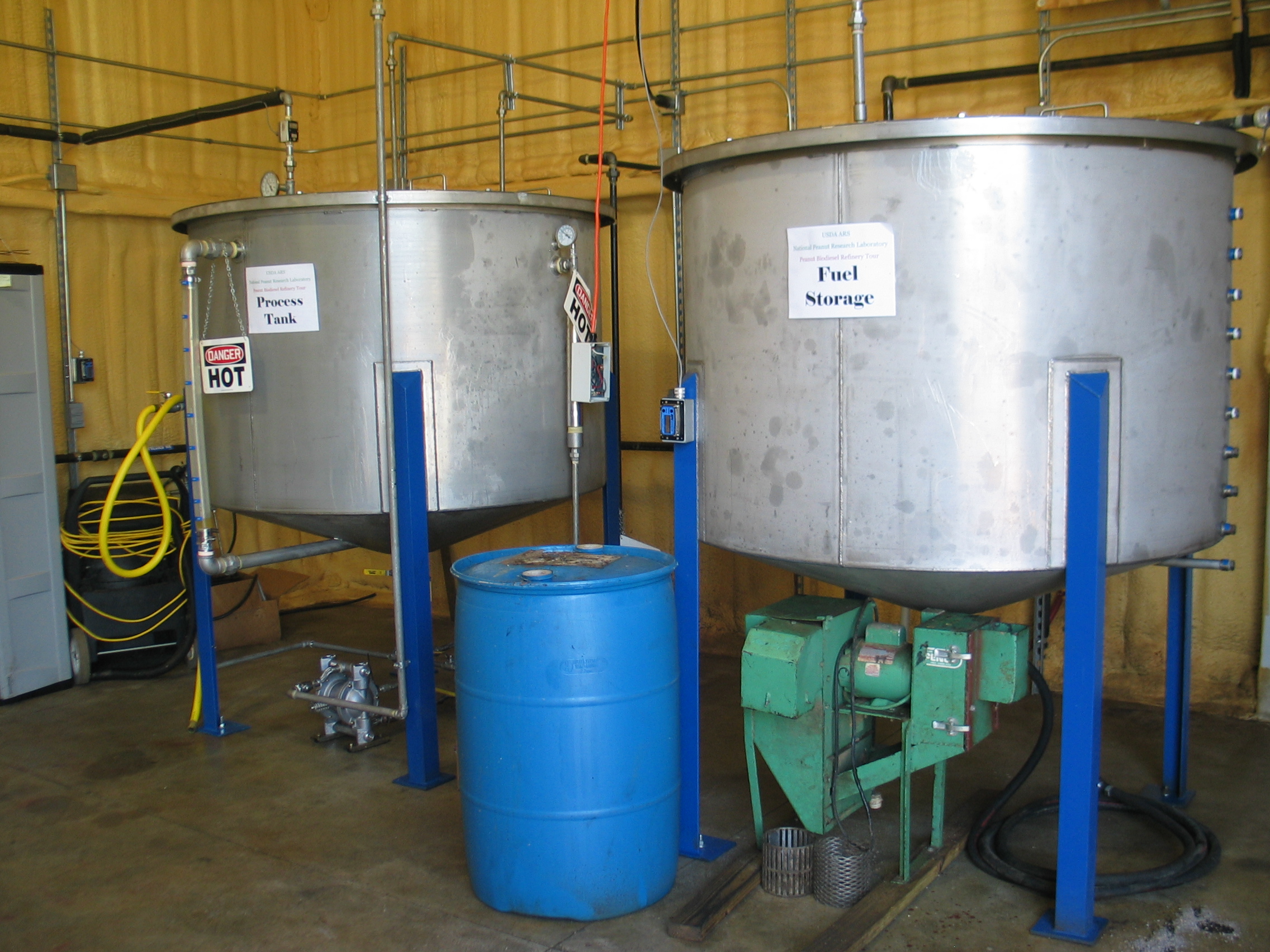 The Georgia Peanut Tour visited the National Peanut Research Laboratory in Dawson, Ga. This labratory was established in 1965 for the purpose of improving farming practices. Since that time, scientists have studied a variety of factors involved in peanut production from better planting practices to better irrigation practices. Scientists have also researched ways to improve harvesting methods, storage methods, and the better use of environmental and financial resources. Today, Scientists continue to research ways for farmers to more efficiently produce a high quality crop. To learn more about the National Peanut Research Laboratory vist them on their website.
The Georgia Peanut Tour visited the National Peanut Research Laboratory in Dawson, Ga. This labratory was established in 1965 for the purpose of improving farming practices. Since that time, scientists have studied a variety of factors involved in peanut production from better planting practices to better irrigation practices. Scientists have also researched ways to improve harvesting methods, storage methods, and the better use of environmental and financial resources. Today, Scientists continue to research ways for farmers to more efficiently produce a high quality crop. To learn more about the National Peanut Research Laboratory vist them on their website.
While at the National Peanut Research Lab Chris Butts, agricultural engineer at NPRL, told the Georgia Peanut Group about the Peanut Biodiesel Project. This project is studying the potential for farmers to make their own biodiesel with crops they have grown and for on-farm use. Peanuts have the highest oil yield potential in the Southeastern U.S. when comparing it to canola or soybeans. Oil feedstocks are cost prohibitive to buy so researchers are looking into the feasibility of growing your own crop for oil. In order to produce the cheapest oil possible,  researchers recommend using a low input production system which includes peanut varieties with high disease resistance, high oil content and reduce or eliminate fungicide applications. A one ton yield with low input production costs can make on-farm fuel economically feasible. The one ton yield would produce approximately 100 gallons biodiesel and 800 pounds of meal which has a high feed value. The research team of Butts, Wilson Faircloth and Diane Rowland have also tested 40 plus peanut varieties in low-input studies in Georgia, Florida and Alabama. The varieties yielding above 100 gallons of fuel per acre are Georgia-03L, DP-1 and Georganic. The peanuts are tested for yield, oil yield, oil quality and biodiesel quality. Another aspect of the research project is the biodiesel refinery. The research and demonstration refinery has a 25,000 gallon per year capacity and the biodiesel made at the lab fuels the tractor fleet at NPRL. In an earlier post Wilson Faircloth explained how crop rotations are an important factor when considering the entire operation and making biodiesel for on-farm use. Click here to read the post.
researchers recommend using a low input production system which includes peanut varieties with high disease resistance, high oil content and reduce or eliminate fungicide applications. A one ton yield with low input production costs can make on-farm fuel economically feasible. The one ton yield would produce approximately 100 gallons biodiesel and 800 pounds of meal which has a high feed value. The research team of Butts, Wilson Faircloth and Diane Rowland have also tested 40 plus peanut varieties in low-input studies in Georgia, Florida and Alabama. The varieties yielding above 100 gallons of fuel per acre are Georgia-03L, DP-1 and Georganic. The peanuts are tested for yield, oil yield, oil quality and biodiesel quality. Another aspect of the research project is the biodiesel refinery. The research and demonstration refinery has a 25,000 gallon per year capacity and the biodiesel made at the lab fuels the tractor fleet at NPRL. In an earlier post Wilson Faircloth explained how crop rotations are an important factor when considering the entire operation and making biodiesel for on-farm use. Click here to read the post.
